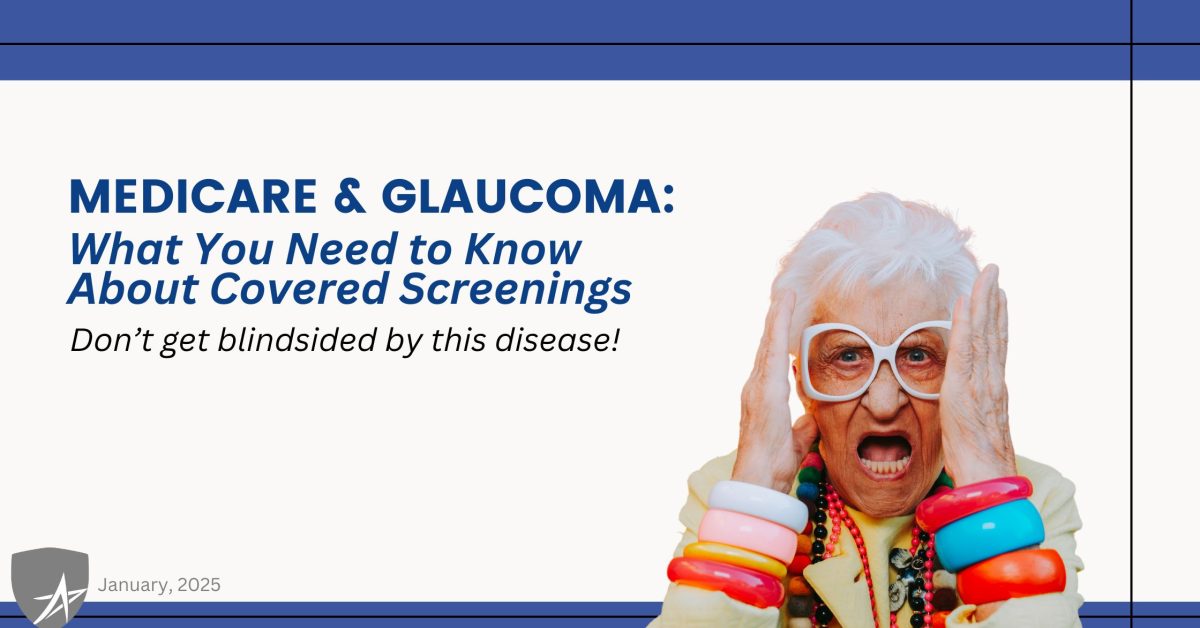Don’t get blindsided by this disease!
Glaucoma is a serious eye disease that can develop without noticeable symptoms, leading to permanent vision loss if left untreated. Fortunately, Medicare Part B covers glaucoma screenings once every 12 months for individuals at high risk, facilitating early detection and timely treatment. If you meet the criteria, it’s important to utilize this benefit to protect your vision.
What Is Glaucoma?
Glaucoma damages the optic nerve, which transmits visual information from the eye to the brain. This damage often results from increased pressure in the eye due to fluid buildup, gradually reducing peripheral vision. If untreated, glaucoma can lead to severe vision impairment or blindness.
Early detection is crucial, as it can slow or halt the disease’s progression through medication or surgery. Regular screenings are essential, especially for individuals at higher risk.
Who Is at High Risk for Glaucoma?
Medicare considers you at high risk for glaucoma if any of the following apply:
- You have diabetes.
- You have a family history of glaucoma.
- You’re African American and 50 or older.
- You’re Hispanic and 65 or older.
If you fall into any of these categories, discuss glaucoma screenings with your doctor to ensure early detection and treatment.
Medicare Coverage and Costs
Medicare Part B covers one glaucoma screening per year for individuals at high risk. Here’s what to expect:
Original Medicare:
- After meeting the Part B deductible ($257 in 2025), you pay 20% of the Medicare-approved amount for the screening.
- In a hospital outpatient setting, you also pay a copayment.
Medicare Advantage Plans:
- Costs may vary depending on your specific plan.
- Contact your plan provider for detailed coverage information.
Why Regular Screenings Matter
Glaucoma is often called the “silent thief of sight” because symptoms typically don’t appear until significant vision loss has occurred. Regular screenings help detect glaucoma early, making treatment more effective and preserving vision.
If you’re at high risk, schedule your Medicare-covered glaucoma screening today. Staying proactive about your eye health can make all the difference in preventing vision loss and maintaining a good quality of life.
Contact our office today if you would like to learn more details about your Medicare coverage plan benefits so that you can stay on top of your eye health this year!

